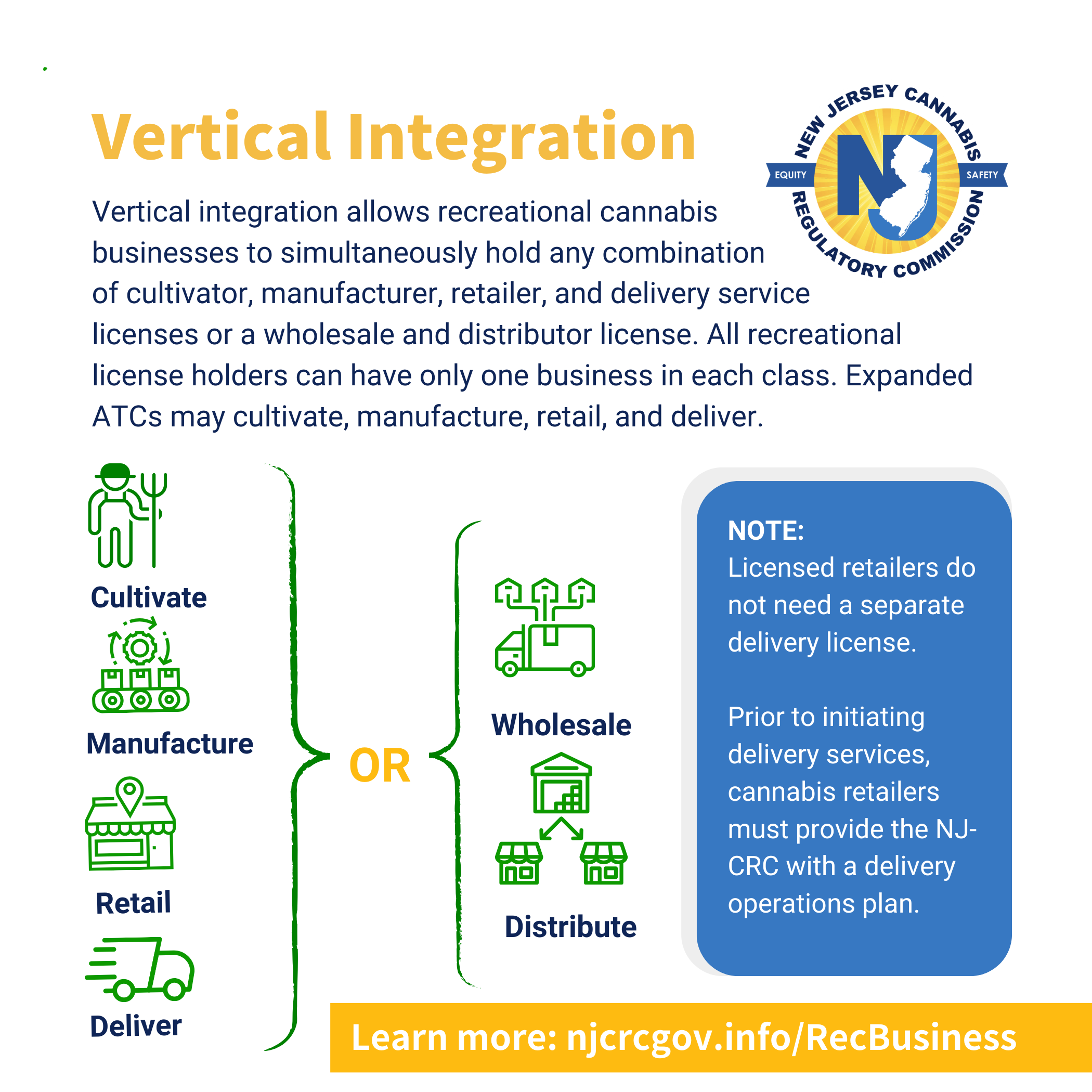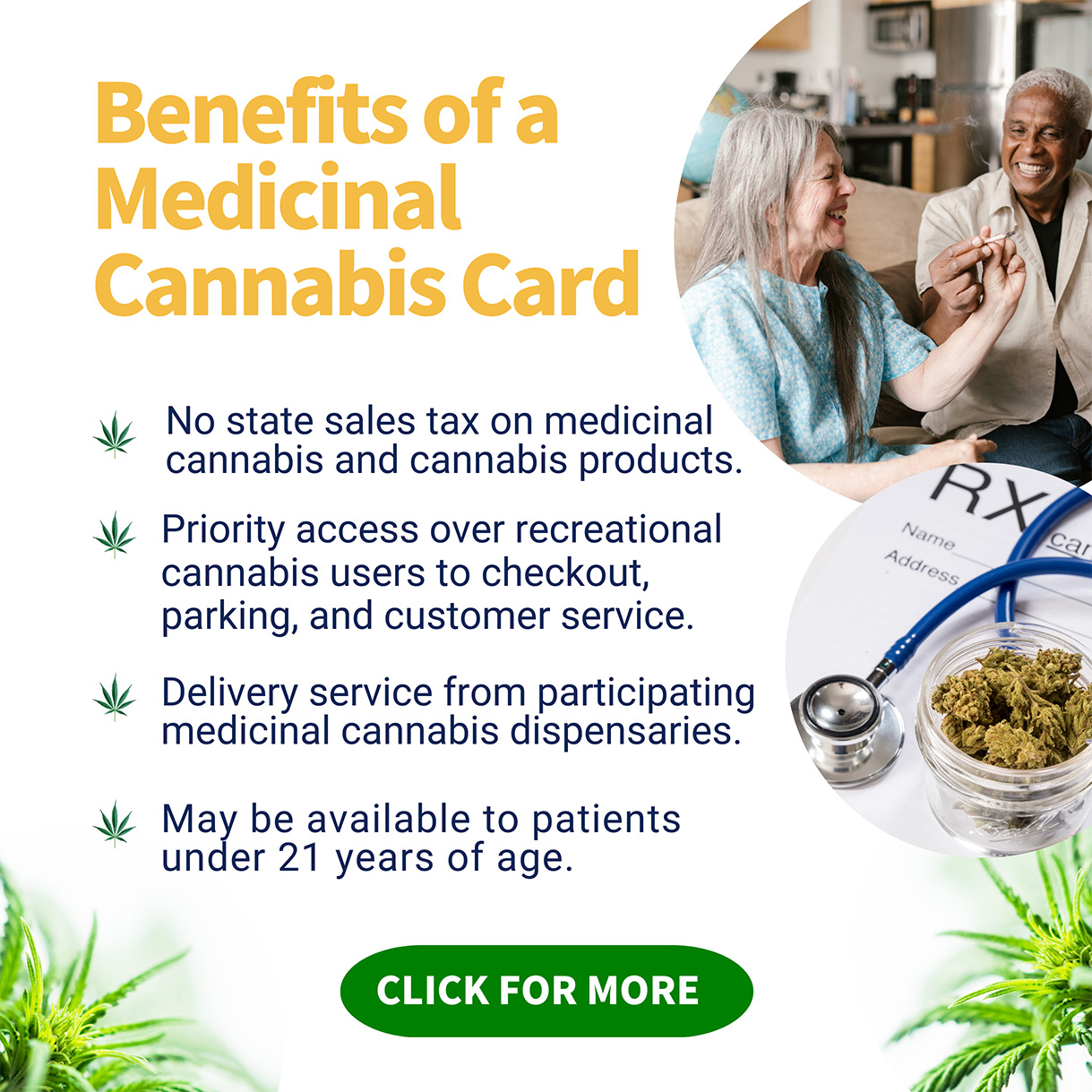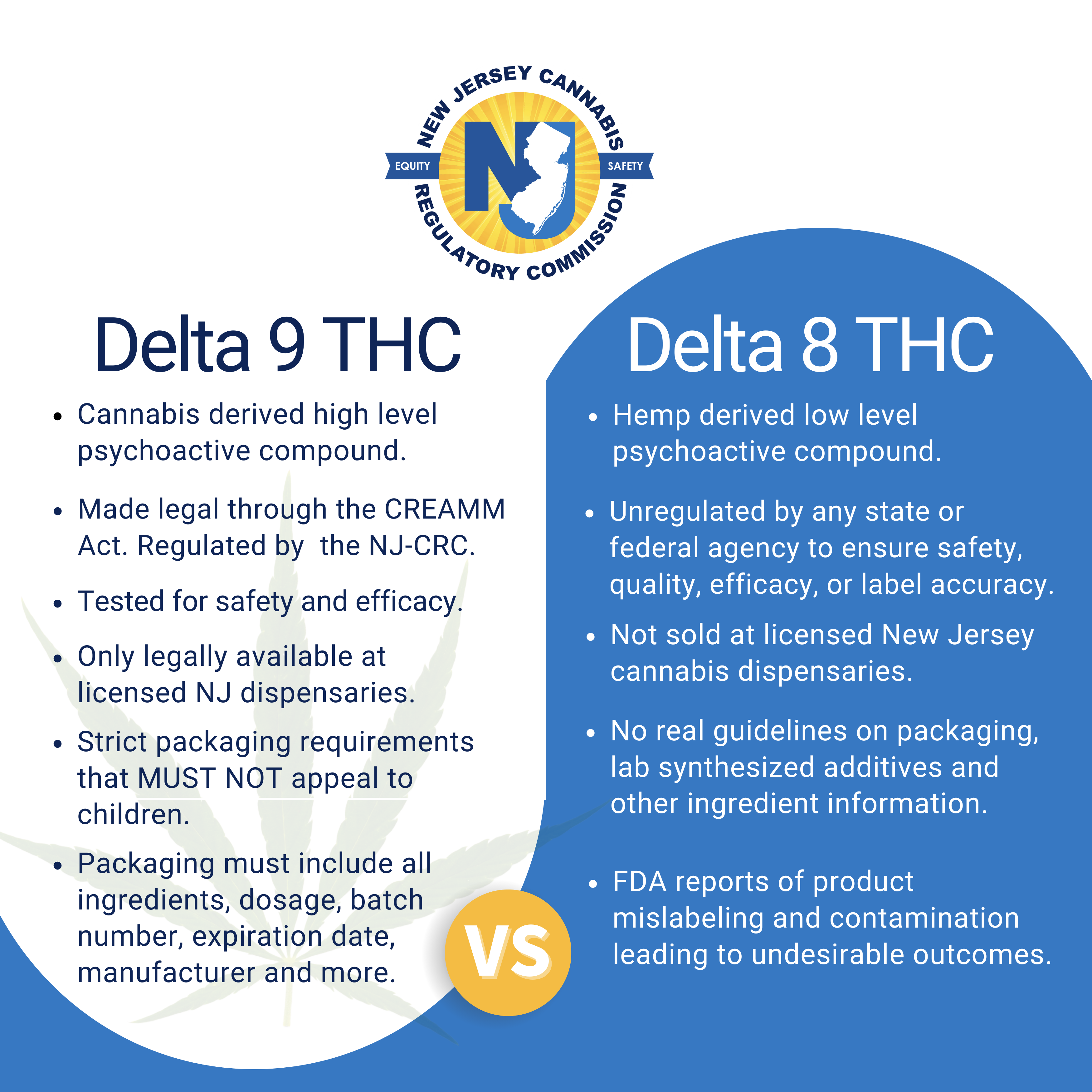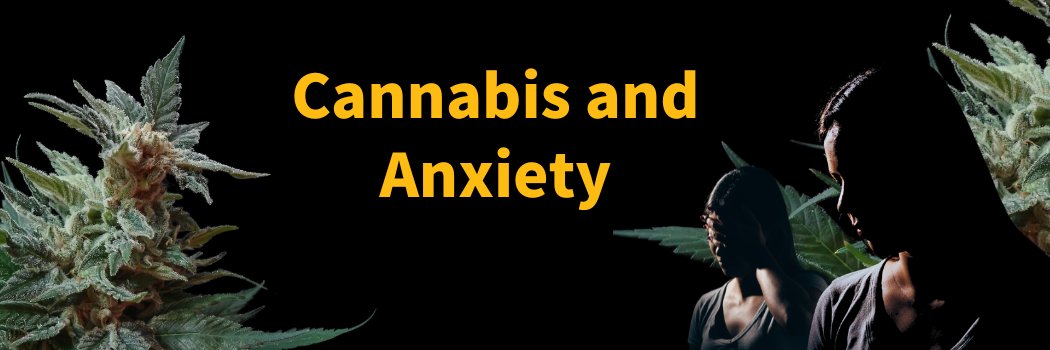
Cannabis and Anxiety
May is Mental Health Awareness Month and according to the World Health Organization, anxiety is one of the most common mental health disorders worldwide. As cannabis has increasingly gained recognition as a treatment option for various forms of anxiety, it is a qualifying medical condition for New Jersey’s Medicinal Cannabis Program – as is Post-Traumatic Stress Disorder (PTSD). While the federal ban on cannabis currently restricts scientific and medical research, there are some studies that indicate potential benefits for those living with anxiety disorders are promising.
Anxiety encompasses a wide range of conditions characterized by feelings of nervousness, worry, or fear severe enough to interfere with daily activities; and include a variety of diagnoses from general anxiety disorder to more specific disorders such as obsessive-compulsive disorder.
According to the National Institute of Mental Health, 31.1% of U.S. adults will experience an anxiety disorder at some time in their lives. It can manifest in many forms, affect people in a variety of ways, and may be exacerbated or triggered by everything from everyday events to traumatic occurrences. While cannabis may aid in treating anxiety, understanding the different types of anxiety disorders can help you and your healthcare provider determine the best approach to potentially managing symptoms with cannabis.
Some research that suggests cannabis may offer relief, especially for those living with Social Anxiety Disorder. THC is a psychoactive component of cannabis, and it has a biphasic effect on anxiety, which means it can have different effects at different doses. Low doses of THC may yield calming outcomes, while higher doses may intensify anxiety symptoms. For some, cannabis may not be the right treatment protocol for their anxiety. The ratio of CBD to THC is also a factor to be included when considering cannabis for specific anxiety disorders, as are personal factors like family history of psychiatric illness and concurrent treatments or medicines. It is crucial to approach cannabis treatment cautiously and under the guidance of your healthcare provider.
Types of Anxiety Disorders
Generalized Anxiety Disorder: A condition characterized by excessive, persistent, uncontrollable worry or anxiety about various aspects of daily life occurs, generalized anxiety disorder makes it difficult for individuals to relax and focus. The use of medicinal cannabis may improve generalized anxiety disorder symptoms, general health-related quality of life, and sleep.
Research:
- Mehmet Ergisi, Simon Erridge, Michael Harris, Michal Kawka, Devaki Nimalan, Oliver Salazar, Katerina Loupasaki, Rayyan Ali, Carl Holvey, Ross Coomber, Michael Platt, James J Rucker & Mikael H Sodergren (2022) UK Medical Cannabis Registry: an analysis of clinical outcomes of medicinal cannabis therapy for generalized anxiety disorder, Expert Review of Clinical Pharmacology, 15:4, 487-495, DOI: 10.1080/17512433.2022.2020640
Social Anxiety Disorder: Also known as social phobia, social anxiety disorder involves intense fear of social situations where one might feel scrutinized or judged by others. Some studies show CBD can be helpful to reduce the overwhelming feelings.
Research:
- Crippa JAS, Derenusson GN, Ferrari TB, et al. Neural basis of anxiolytic effects of cannabidiol (CBD) in generalized social anxiety disorder: a preliminary report. Journal of Psychopharmacology. 2011;25(1):121-130. DOI: 10.1177/0269881110379283
- Rosário, Bárbara dos Anjos, Lemes, Jéssica Alves, de Lima, Maria Paula, Ribeiro, Daniel Araki and Viana, Milena de Barros. "Subjective, behavioral and neurobiological effects of cannabis and cannabinoids in social anxiety" Reviews in the Neurosciences, vol. 35, no. 2, 2024, pp. 197-211. https://doi.org/10.1515/revneuro-2023-0078
Post-Traumatic Stress Disorder (PTSD): PTSD can arise after experiencing or witnessing a traumatic event, causing flashbacks, nightmares, and severe anxiety. Research has preliminarily shown that patients being treated with CBD capsules or sprays can reduce some PTSD symptoms such as flashbacks, irritability, and difficulty sleeping.
Research:
- Sarris, J., Sinclair, J., Karamacoska, D. et al. Medicinal cannabis for psychiatric disorders: a clinically-focused systematic review. BMC Psychiatry 20, 24 (2020). https://doi.org/10.1186/s12888-019-2409-8
Obsessive-Compulsive Disorder (OCD): Characterized by two key components: obsessions (intrusive thoughts) and compulsions (repetitive behaviors), OCD can significantly disrupt a person’s life. Inhaling cannabis can have short-term beneficial effects on symptoms of OCD, such as a reduction in compulsions, intrusions, and anxiety. Overtime however, individuals may develop a tolerance, potentially requiring higher doses to continue feeling less impact from the intrusions.
Research:
- Dakota Mauzay, Emily M. LaFrance, Carrie Cuttler, Acute Effects of Cannabis on Symptoms of Obsessive-Compulsive Disorder, Journal of Affective Disorders, Volume 279, 2021, Pages 158-163, ISSN 0165-0327, https://doi.org/10.1016/j.jad.2020.09.124.
Anxiety poses challenges to quality of life. Cannabis could provide relief. While further research is needed, the existing evidence of its treatment potential is promising.
Don't yet have a healthcare provider that's recommending cannabis? Find one here.
DISCLAIMER
The information presented in this blog post is for informational purposes only and should not be used as a substitute for professional medical advice, diagnosis, or treatment. Seek advice from your physician or other qualified healthcare provider if you have any questions about a medical condition or incorporating cannabis into your treatment. Do not ignore professional medical advice or delay seeking it due to anything you may have read on this website.
Previous Blog Posts
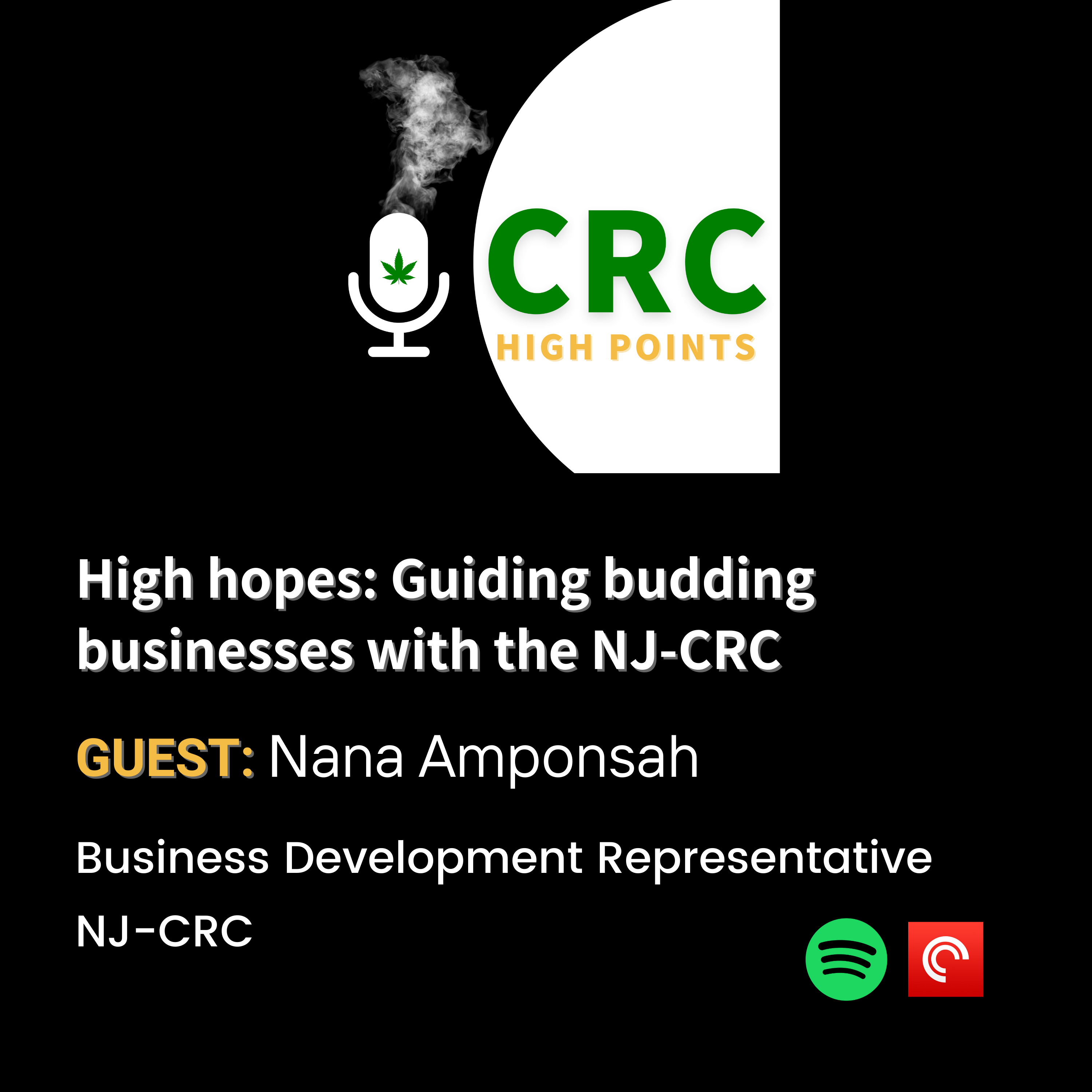
High Hopes: Guiding budding businesses with the NJ-CRC
09/5/2025
Nana Amponsah, business development representative at NJ-CRC, talks about her role, as part of the Office of Diversity & Inclusion, in identifying challenges cannabis entrepreneurs face, providing assistance to applicants and new businesses wherever possible, and acting as a liaison between cannapreneurs and other state agencies that provide support. She also explains how NJ cannabis business development differs from other fields, emphasizing the continuous need for support.

Tips for SMART Gatherings This Holiday Season
11/26/2025
The holidays are a time for food, fun, laughter, and connecting with the people who make life sweeter. And as more adults in New Jersey choose to enjoy, or gift legal cannabis during the season, the NJ-CRC has launched its second safe-use campaign, S.M.A.R.T., to help keep celebrations (relatively) stress-free. S.M.A.R.T. is an easy way to remember the basics of responsible cannabis use, especially when travel is constant, roads are chaotic, homes are busy, and curious little ones are wandering.
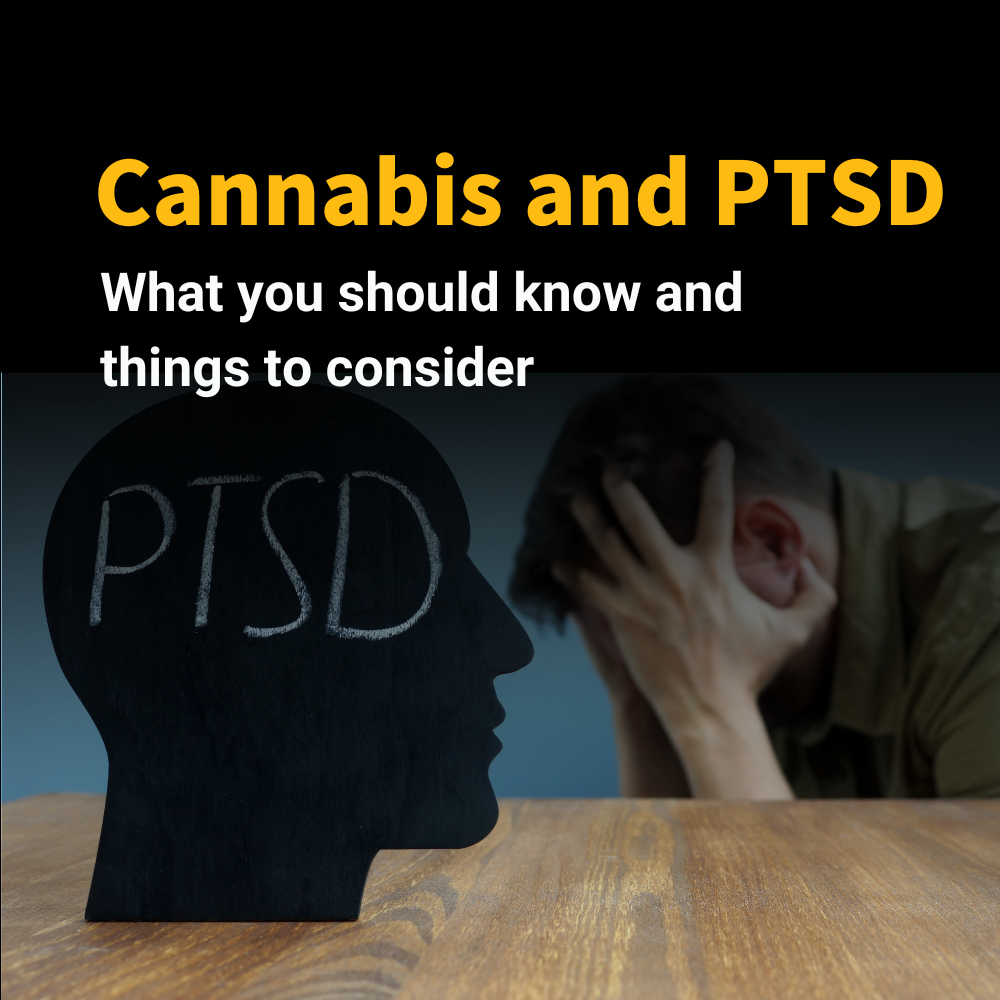
Cannabis and PTSD
10/20/2025
Everyone feels pain at some point—whether it’s a sore back after a long day, a pounding headache, or stomach cramps that just won’t let up. But for some people, pain isn’t temporary. It’s a constant part of daily life. Anxiety disorders are the most common qualifying condition for New Jersey’s Medicinal Cannabis Program (MCP). However, various forms of pain also rank highly on the list of qualifying conditions. Specifically, chronic pain related to musculoskeletal disorders is the second most common condition, migraines are fourth, and chronic pain originating from visceral sources ranks fifth.
 Official Site of The State of New Jersey
Official Site of The State of New Jersey
